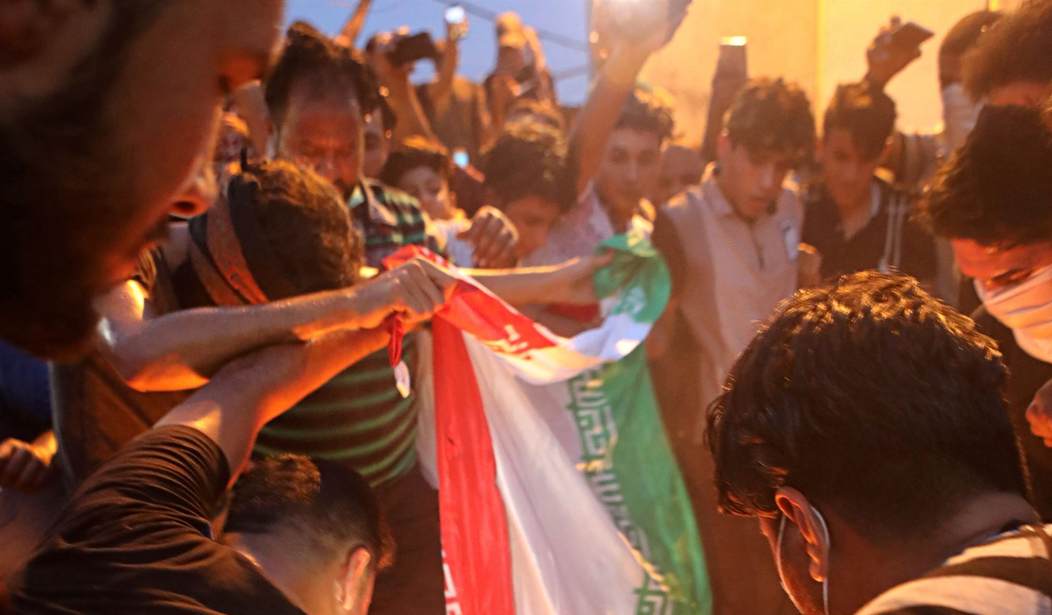The Iranian regime is not only covering up its nuclear weapons ambitions. For more than three decades, the extremist theocracy has tried to cover up one of its greatest crimes against humanity. In 1988, in what became known as the 1988 massacre, Tehran began the systematic killing of thousands of dissidents and opposition activists. Ultimately, an estimated 30,000 people lost their lives in the brutal massacre. But a court in Sweden is now ending the regime's cover-up.
In November 2019, Swedish authorities arrested a man, Hamid Noury, believed to have been involved in the 1988 massacre. On July 27, 2021, after 21 months of investigation, prosecutors at the District Court of Stockholm issued an indictment against Noury. On August 10, his trial began, and a final sentence is expected to result in April 2022.
In the course of the investigations and trial, members and supporters of the primary opposition Mujahedin-e Khalq, who were witnesses to Noury’s crimes, testified before Swedish authorities and provided significant evidence and documentation to the court. Most of the 35 plaintiffs in Noury’s case were MEK supporters. Many witnessed Noury in the "Death Corridor" in Gohardasht prison, where prisoners were lined up to be taken to execution hall.
It is believed that thousands of political prisoners were massacred in Gohardasht Prison in the summer of 1988, based on a fatwa (religious decree) by the then-Supreme Leader Ruhollah Khomeini. None had been sentenced to death but were summarily hanged only because they remained steadfast in their beliefs and democratic ideals. Members of the MEK made up the overwhelming majority of the 30,000 victims, particularly because they advocated a democratic and tolerant reading of Islam that contradicted the extremist mullahs' fundamentalist ideology. For this reason, many legal experts view the 1988 massacre as a "genocide" in addition to a crime against humanity.
Recommended
This month, judges moved the trial to Albania to hear from seven MEK members who reside at Ashraf-3 near the town of Durres. The presiding Judge Radmannen Tomas Zander, said, “Given the importance of these testimonies for the case, all the six judges, two prosecutors, lawyers for the plaintiffs, will all go to Albania.”
The detailed and graphic testimonies by the seven witnesses from Ashraf 3, who gave firsthand information about the atrocities and mass executions that occurred in Gohardasht, shocked the court. The proceedings were widely reported by the media, especially by several Farsi-language satellite channels broadcasting into Iran. The evidence and accounts provided by the witnesses were extraordinarily grim and disturbing. Noury was said to have been involved in the brutal torture and he personally participated in the executions on some occasions.
Noury's trial in Sweden focuses purely on events in one prison, namely Gohardasht, because that is where Noury is accused of participating in the systematic killings. But, clearly, the massacre in 1988 was being carried out in prisons across the country, including at the infamous Evin prison in Tehran.
That is why families of the victims are advocating for a broader investigation into the 1988 massacre, particularly by the United Nations. The advocacy has garnered wider attention and focus particularly after one of the main perpetrators of the 1988 massacre, Ebrahim Raisi, was installed as the new president of the theocracy last summer.
Amnesty International's Secretary General Agnès Callamard was quick to point out that the fact that "Ebrahim Raisi has risen to the presidency instead of being investigated for the crimes against humanity of murder, enforced disappearance and torture, is a grim reminder that impunity reigns supreme in Iran."
After pointing out that Raisi was "a member of the 'death commission' which forcibly disappeared and extrajudicially executed in secret thousands of political dissidents in Evin and Gohardasht prisons near Tehran in 1988," Callamard added: "We continue to call for Ebrahim Raisi to be investigated for his involvement in past and ongoing crimes under international law, including by states that exercise universal jurisdiction."
A similar call was made by the UN investigator on human rights in Iran, Javaid Rehman, in June. According to Reuters, " he called for an independent inquiry into allegations of state-ordered executions of thousands of political prisoners in 1988 and the role played by President-elect Ebrahim Raisi as Tehran deputy prosecutor."
Noury’s case is significant enough that the Iranian regime's Foreign Minister raised serious complaints about it in a meeting with his Swedish counterpart on the fringes of the UN General Assembly in September. He said that the MEK has "fabricated" the evidence. Similar claims will be made by Noury himself next week during his own testimony. Noury will no doubt try to justify the crimes he committed by trying to tarnish the MEK's image.
There is little doubt that Noury will ultimately face justice.
It is up to the media and the international community to also ensure that thousands of families of the victims of the 1988 massacre also get their basic demand: To hold the main perpetrators of the 1988 massacre in Iran accountable for their crimes against humanity, particularly Raisi and the current Supreme Leader Ali Khamenei.

























Join the conversation as a VIP Member